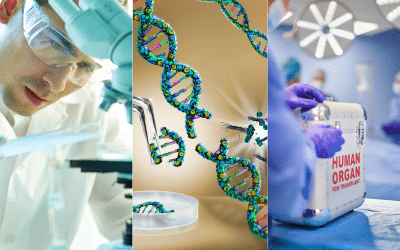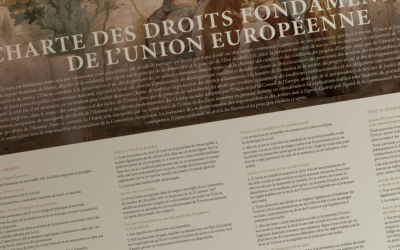Interview with Caroline Roux, General Secretary for Alliance VITA, who expresses her disappointment due to the lack of debate. You can find this interview (in French) on Newsring.
The authorization of research on embryo stem cells and on human embryos is not only ethically unacceptable but also scientifically unjustified. Furthermore, there has been no opportunity to debate this matter. The 2011 Bioethics law, which upheld the principle of excluding research on embryos, proposed the setting up of a commission in times of major ethical changes. Science has made great advances, whether on umbilical cord blood cells, on adult stem cells, or on reprogrammed, induced pluripotent stem cells (also known as IPS cells). Therefore, it was worth having a proper debate of the subject.
The 2011 law was already far from being ideal. We were opposed to this law because we are opposed to using human embryos – a human being at his/her first embryonic stage – as laboratory materials. The ban by principle (with its derogations) at least allowed symbolic embryo protection. But the new legal project goes a step beyond this: the principle of respecting the embryo as a human being will now become the exception.
Embryos used as guinea-pigs
This poses profound ethical questions. In particular one needs to question the large stock of frozen living embryos in France. There are about 171,000 according to latest statistics from the Biomedical Agency. These embryos were created from a very strong desire, and they are destined to be used in research like guinea-pigs. This should challenge our society who acts as a divine power over the smallest and weakest members, those placed at the very beginning of life.
To this day, embryo research has given us nothing, whereas alternative research on adult stem cells has already borne fruit. More than 90 types of disease are now treated with blood cells from umbilical cord tissue. Some countries have advanced greatly on IPS – reprogrammed stem cells, which are far more promising. And if one day we no longer had thousands of spare embryos from in-vitro fertilization, should they be created? We are faced with an extremely serious ethical problem.
At Alliance Vita, we are asking for a moratorium on freezing embryos, so that spare embryos from in-vitro fertilization should no longer be frozen. There is something extremely unjust in fixing embryos, wanting to stop time. You could even have embryos conceived simultaneously who can be born twenty years apart. This already creates whole depths of psychological issues. Producing embryos, born from a desire, that in the end are destroyed, raises serious questions for our society!
Treating infertility rather than using substitute solutions
For years, we have also been asking that real research be carried out on infertility. We must discover means to treat it properly instead of by-passing it. Listening to couples confronted to infertility, one understands that they want the possibility to procreate naturally to do without medical artifice. Yes, one can have children by medically assisted procreation, but medicine has only found substitute solutions that don’t answer the challenge of curing infertility.
As an embryo is ‘another’ genetic being, there may be problems of cell compatibility with the potential recipient. With reprogrammed cells, however, since they are the cells of the same person, there are no rejection problems, and therefore more chances of success. To think that one can be treated with one’s own cells opens large horizons of success. By the way, this is the choice made by Japan.
The Justice Minister said that France is falling behind. I do agree, because our country is still focusing on a standard considered promising in the early years of 2000. In today’s scientific research reviews we see that there is always prevention against using embryonic stem cells, due to ethical aspects and to rejection problems. Things have evolved greatly these last years, notably with Shinya Yamanaka’s research, the Japanese Nobel Prize winner of 2012. The American company Geron has also abandoned its research on embryos as being unprofitable.



